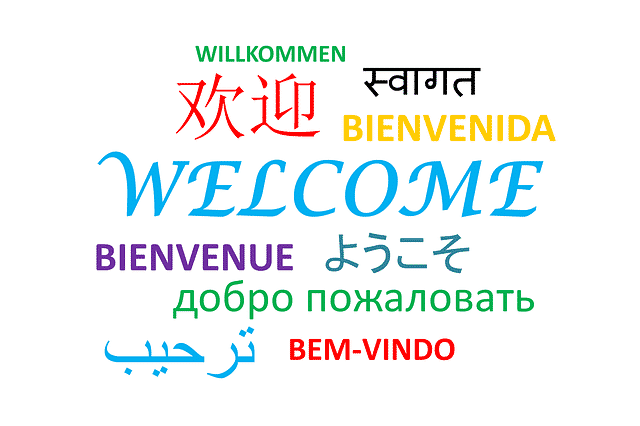Did you know that learning a new language becomes easier as you age, not harder? Today we will talk about language learning for seniors.
I recently decided it was time to learn a new language. I’m proficient in two languages, Finnish and English, and I can make do with Swedish.
I was always under the impression that learning a new language as an adult is very hard and slow compared to learning as a child when our brains are developing and learning new stuff at an accelerated rate.
This misconception and my experiences from learning a new language in school are what has put me off from learning a new language for years. I wish I had this knowledge of language learning back then.
I learned English at a very young age, almost by accident and by myself from watching American TV shows, movies and playing video games and music.
I enjoyed all those activities very much and I simply immersed myself in the language. Bear in mind that I barely knew Finnish at this point as I was between 5 and 8 years old.
I still remember vividly how easy it was to learn a new English word. I just learned it by association or if at first, I didn’t understand it, I looked it up in a dictionary and instantly understood the word.
This leads me (and my parents) to think that I’m relatively gifted with language. I never really needed to study English in school, I just participated in the classes.
But then something strange happened. Finland is a two-language country, so we have to learn Swedish as well. This, however, starts in junior high and to my surprise, I didn’t like learning a new language from scratch and I really wasn’t good at it. I barely passed the exams and it took me years to learn enough Swedish to understand simple conversations.
This made me believe that I couldn’t learn a new language as fast and as easily as I did English all those years ago as a little kid. I always wanted to learn new languages but this one stupid idea has kept me off it for years.
I’m telling you this because you might have similar experiences or maybe you are wondering if it’s possible to learn a new language as a senior and have similar misconceptions.
And I have good news for you! Not only is it possible to learn a new language as a senior but you are actually better at learning new languages than as a child.
How age affects language learning
While it’s true that learning new skills becomes harder as you age, there is some evidence that learning a new language happens just as fast as a kid. At least if you put in the hours.
Your brain is likely slower to memorize things but your ability to associate words and phrases and understand the true meaning of words is much greater as an adult.
Just think about. A child has to both learn the word and the meaning as well. This is relatively easy with simple objects but becomes very hard when a child has to learn more complicated concepts like evolution and mixing it with similar words, like revolution.
As an adult, you don’t have these limitations and you have a much larger database to associate words with. It’s been proven over and over again that adults, including seniors, can learn new languages in relatively short time frames like a few months.
One of the key reasons kids actually learn languages faster is because the put in a lot more hours and usually get immersed in the new language.
Another factor in play is the fact that adults are often their worst enemy. They don’t believe they can learn a new language so they don’t really give it their best.
To effectively learn a lanaguage you need to have the motivation and put in the hours consistently. Just like any other skill. So if you really want to learn a new language enough you just have to practice it enough until you master it.
Common misconceptions that hold you back from learning a language
People have several misconceptions about learning and using a language that holds them back from learning a new language. What’s even more unfortunate is that many educational organizations seem to hold these misconceptions as well.
- You need a huge vocabulary to start using a language. This is simply not true. You should start forming sentences and forming word associations as soon as you know a few words. There is no point in memorizing a ton of words first because you will forget most of them if you have not associated them with anything.
- You need to understand the grammar and structure of the language perfectly to use it. This is probably the most stupid one. I remember in school how we started learning a new language by learning prepositions, inflected forms, irregular verbs, etc. All this is next to impossible to internalize unless you can associate it with a practical example you already remember. You should worry about this stuff only after you have learned to speak full sentences. Language is all about communication and at its most basic levels communication doesn’t need complicated sentence structures and grammas. If I point to a cat and say “cat black” with a bad accent, you still understand that I’m saying the cat is black.
- The best way to increase vocabulary is by memorizing lists of words. This was also something that made learning a language almost impossible in school. After each class, we had to learn a list of 30 to 50 words that would be quizzed for the next class. Guess how many of the words I would remember the class after that? Learning simply doesn’t work like this. You can’t learn a language by memorizing things, you learn by associating things.
- Making mistakes is embarrassing and makes you look like a fool. Another common misconception that keeps people from actually using a foreign language. You might even be almost fluent in a language but refuse to speak it when traveling because you fear you will embarrass yourself by making grammar or pronunciation mistakes. Just think about the last time someone asked you for help in broken English. Did you turn them down because their grammar wasn’t perfect or did you do your best to help them to deliver their message.? This is how human communication works and the main purpose of a language is communication. Most people are very understanding when you try to speak a foreign language. And if they aren’t, the shame is on them.
- You need to pronounce like a native to be understood. People are very good at picking up words in their own language, no matter how funny they are pronounced. Usually, they can figure it out from association if they can’t otherwise recognize the words. Of course, there are differences between languages on how different the pronunciation is from the written form. But if you can pronounce the word even remotely correctly, native speakers will usually understand what work you are looking for. They might repeat it to you but this is a simple confirmation of communication, not an insult.
These were just some of the examples of reasons people undermine their ability to learn a new language. I bet you can come up with some so feel free to share them in the comments section below!
Best way to learn a language as an adult
So how do you get over these limiting beliefs and learn a new language more efficiently? By using modern learning software that is designed with word association.
There are several programs on the market for language learning but most of them share one simple concept. They start teaching you the words straight away through word association.
Instead of doing it the “old fashioned” way where you spend hours and hours learning about the basics of sentence structures, inflections, alphabets and all that boring stuff the programs make you learn a new word and then use it in a sentence.
This way you will instantly form an association with the word and it’s used in a sentence, even if you don’t really know all the words or the rules of forming that sentence.
Over time as your vocabulary grows, the programs will start adding more complicated sentence structures and more difficult words. This way you learn as you go.
Besides that these programs are designed to make learning fun. Nothing works better for learning than actually enjoying it. This is why most people find it extremely difficult to learn things through simple reading, it’s boring.
Best language learning programs
My recommendation for a language learning is to get the free app DuoLingo on your phone and purchase the Learn That Language Now language learning product.
This is because I think DuoLingo is extremely effective in helping you learn you through word association but if you want to fast track your language learning, you should utilize the ridiculously effective tricks in the Learn That Language Now.
Learn That Language Now is an information package that teaches you very effective tips, tricks, and techniques to learning foreign languages.
It was created because the traditional methods of language courses and audio courses simply weren’t up to modern teaching standards and were also inefficient and costly.
The tricks you learn with the program will improve your ability to study any language with DuoLingo and it’s actually designed with DuoLingo in mind.
With these programs, all you need is a smartphone, tablet computer or laptop and you are all set to start learning a new language anywhere in the world.
Conclusion
I hope you found my recommendation for language learning useful. If you have any questions, don’t hesitate to contact me in the comments section below.
If you are a senior and want to learn a new language but are questioning if you can do it, I have only one wish for you. Put all your false negative believes behind and simply start learning by using modern language learning software.
There is no reason why you can’t learn a language. It’s simply a matter of starting and sticking with, so get started today!
If you found this article useful, please subscribe to my newsletter, bookmark this site and share in social media. I plan on writing more about self-improvement for seniors in the future so stay tuned!
See you next time!


Thank God I found your site about learning another language for seniors. I have wanted to learn my 3rd language for some time now, but had many of the misconceptions about old age, and learning a new language. But after reading this piece, I feel more hopeful. My first language is Spanish, and English my second. But I can understand quite a bit of Portuguese and Italian, when it’s spoken as in the news, and similar scenarios. I can even understand quite a bit of reading in those languages, and make sense of what I read. But I still had the misconceptions about the spoken part of it. I’ll definitely go for it. If anything, at least it will keep my brain neurons healthier, and maybe fend off dementia 🙂
Glad you found the post useful Aida! Good luck with your language learning, it’s never too late and you have an excellent base since you can already understand four different languages.
Aida, you have advantage already in that you have stimulated your synapses by learning more than one language already! Definitely take on another as you will probably take to it like a duck to water! 🙂